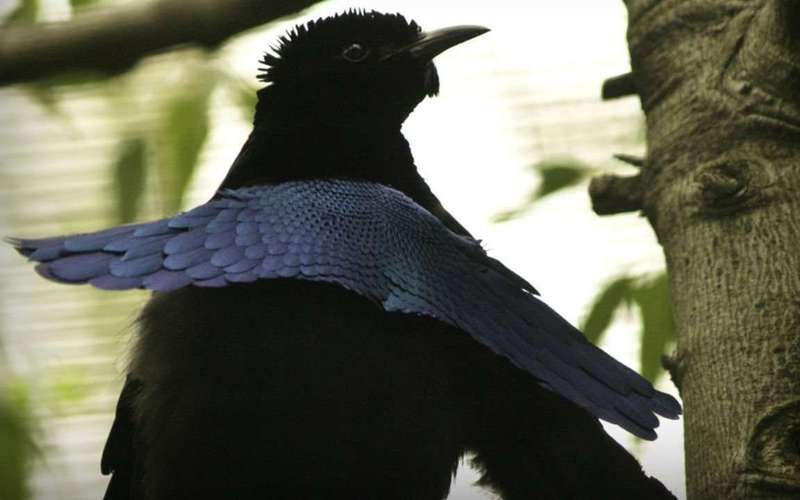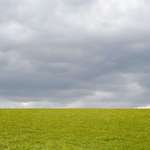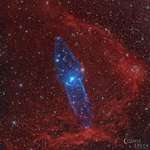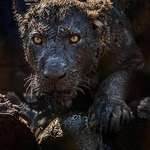‘Superblack’ bird of paradise feathers absorb 99.95% of light.
Scientists have gone to great lengths to make the blackest possible surfaces.
WIRED reports that certain male birds of paradise have “superblack” feathers that absorb as much as 99.95% of light.
The profoundly black appearance is produced by the microscopic structure of the feathers.
Whereas other birds’ feathers have lots of tiny filaments that lie flat and are neatly organized, on the birds of paradise these filaments are tightly packed and bend upward, with deep cavities between them.
As light enters the feather, it bounces around these cavities and gradually gets absorbed.
Writing in Nature Communications , the scientists speculate that superblack feathers make neighboring, colorful patches on the bird appear even brighter to impress females during courtship. »

















![image for NY style cheesecake with blueberries [Homemade]](17817be6-ed7c-5fc4-8417-065637a232e0_thumb.jpg)